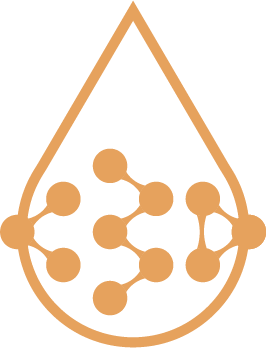No products in the cart.

Is CBD safe?
The latest “European Drug Report 2022: Trends and Developments” says:
“In 2020, the European Court of Justice published a judgement stating that CBD extracted from the whole hemp plant does not qualify as a narcotic drug, since according to the current scientific understanding the aforementioned plant has no psychoactive properties”.
At its November 2017 meeting, the WHO Expert Committee on Drug Dependence (ECDD) concluded that, in its pure state, cannabidiol does not appear to have abuse potential or cause harm.
Conclusions of the WHO Expert Committee in 2018: ( https://www.who.int/docs/default-source/controlled-substances/whocbdreportmay2018-2.pdf?sfvrsn=f78db177_2 )
- CBD exhibits no effects indicative of abuse or dependence potential in humans
- CBD has proved to be effective in treating epilepsy; prescription medicine called Epidiolex® is about to be approved in the USA (Note: it was later approved on June 26, 2018)
- preliminary preclinical evidence suggests that CBD may be useful in treating a number of other medical conditions
- medicinal use of CBD products is not regulated, but also not prohibited
- CBD is generally well-tolerated with a good safety profile
Furthermore, according to the aforementioned Conclusions, there is evidence of effectiveness of CBD in treating not only epilepsy, but numerous other medical conditions as well. Less comprehensive research studies show preclinical evidence, while others also include a combination of preclinical and clinical evidence on neuroprotective, antiepileptic, hypoxic-ischemic, anxiolytic, antipsychotic, analgetic, anti-inflammatory, anti-asthmatic and anti-cancer properties of CBD.
The latest human clinical trials indicate a therapeutic role of CBD in transplantation.
Other possible therapeutic uses include drug addiction. A limited number of preclinical studies suggests CBD’s therapeutic effect in opioid, cocaine and psychostimulants, marijuana with a high THC percentage, and tobacco addiction.
It is necessary to emphasize the importance of a significantly broader and more comprehensive research on the therapeutic use of CBD, especially because it has been observed that CBD is more effective if used in synergy with other active ingredients of cannabis (cannabinoids, terpenes and flavonoids), which opens the possibility for a much broader research area.
Due to its beneficial effects and mild and unharmful side-effects, many pharmaceutical companies use CBD in the development of their products. Here are some of them:
- GW Pharmaceuticals (Great Britain)
- Echo Pharmaceuticals (The Netherlands)
- Zynerba® Pharmaceuticals (USA)
- Bionorica® (Germany)
- STI Pharmaceuticals (Great Britain)
- INSYS Pharmaceuticals (USA)
- PhytoTech Therapeutics (Tel Aviv, Israel)
- Ananda Scientific (Israel)
- GW Pharmaceuticals (USA)
Regarding the side-effects, it is useful to emphasise the advantages of full-spectrum oils over CBD isolate. An article (https://www.ncbi.nlm.nih.gov/pmc/articles/PMC7558665/ ) published on PMC states that mild side-effects were 2.5 times less frequent in patients who used full-spectrum oils in comparison to those who used CBD isolate. However, seen that the dose of CBD in the isolate was considerably higher than the one in full-spectrum CBD oil, it remains unclear whether the smaller number of side-effects was caused by a lower dosage or by the use of the full-spectrum oil. The aforementioned research also showed that there were no apparent differences in the effectiveness of higher doses used in CBD isolate in comparison to full-spectrum CBD oil. From this it follows logically that it is far better to use full-spectrum CBD oil than CBD isolate. Not only is the possibility of mild side-effects considerably lower, but it is also more economical as smaller quantities have the same effect.



Leave a Reply